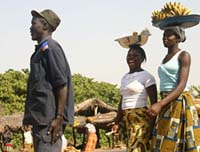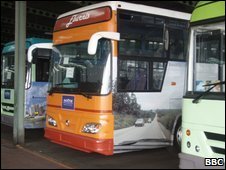Côte d’Ivoire getting back on track
After five years of civil war (2002 – 07) and a year of relative peace, it appears that Côte d’Ivoire is getting back on track to stability, democracy and eventually, relative prosperity. In the 80’s, the West African nation was still one of the continent’s successes. In those days, many of my Togolese friends dreamed of going to Abidjan to find work. The country’s economic success was attributed to the stability and relative freedom under the rule of President Félix Houphouët-Boigny. He had run the country since independence from France, for 33 years, and maintained strong ties with France.
When Houphouët-Boigny died in 1993, he left a huge power vacuum in the country. Ivorians had to come to grips with a sudden transition to democracy. Also the new leadership began to politicize ethnicity, a trap Houphouët-Boigny had always managed to avoid. Ethnic tensions boiled over in a military rebellion in the North of the country, which split the country in two for five years.
Now the country appears to be emerging from this mess. The rebels have begun to disarm and the UN has programs to help re-integrate the decommissioned rebels into civilian life. The Ivorian blogger Yoro (FR, pop-ups) wrote a very interesting story in Afrique in Visu about two groups of decommissioned rebel soldiers (FR) grappling with civilian life.
In Dec. ’08 the Ivorian political parties agreed to hold elections in 2009. There are efforts under way to resolve the citizenship issues and distribute ID cards. The international community has to help with these efforts, and the Ivorian leadership has to be disciplined and committed to the process. If the elections are fair and peaceful, I think Côte d’Ivoire will be well on its way to peace and prosperity.
Economically, things seem to be getting better. Despite the problems of the last years, the national transport company, SOTRA, has created an engineering arm, and begun building buses in Abidjan. The Ivoirian buses are built with parts from European supplier IVECO, and designd specifically to the requirements of being operated in an African city like Abidjan. According to SOTRA’s Mamadou Coulibali the buses are more rugged and have fewer electronic gadgets and fewer seats: “We just need robust buses because our roads are not very well done like in Europe. This is an African design for Africa.”

